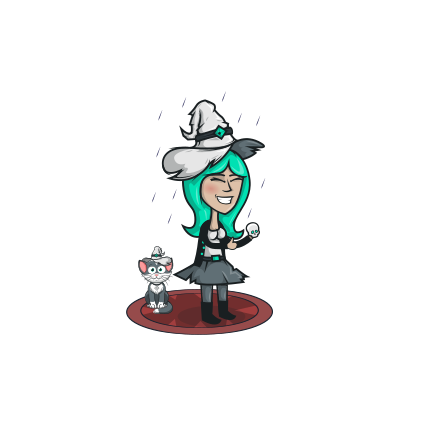Play games
Choose the game that interests you and play itfor free.
Complete the quests
Every game has some quests for which you will receive Soul Gems.
Receive rewards
You can exchange your Soul Gems for Steam Wallet top-ups, game keys, CS:GO Skins and other rewards.








Minecraft is one of the best openworld sandbox game. It mainly has two different versions java and bedrock edition. and here are the difference between these two.
Minecraft, developed by Mojang Studios, is available in two primary editions: Java Edition and Bedrock Edition. These two versions offer distinct features, gameplay experiences, and platform support. Understanding the differences between Minecraft Java and Bedrock Editions is essential for players to make an informed choice about which version suits their preferences and gaming needs.
**1. Platform Compatibility:**
One of the most significant differences between Minecraft Java and Bedrock Edition is their platform compatibility. Minecraft Java Edition is primarily designed for PC gaming and is available on Windows, macOS, and Linux. On the other hand, Minecraft Bedrock Edition is designed to be a unified version across various platforms, including Windows 10, Xbox, PlayStation, Nintendo Switch, iOS, Android, and more. This cross-platform support enables players to play together seamlessly, regardless of their device, using the same world and gameplay.
**2. Mods and Add-ons:**
Another notable distinction between the two editions is their modding capabilities. Minecraft Java Edition is renowned for its robust modding community, allowing players to access an extensive range of user-created modifications. Mods can alter various aspects of the game, introducing new items, creatures, mechanics, and even complete overhauls of the gameplay experience. Conversely, Minecraft Bedrock Edition supports add-ons, which are more limited modifications that players can install directly from the in-game marketplace. While the Bedrock Edition add-ons offer some level of customization, they are not as comprehensive as the extensive modding options available in Java Edition.
**3. Redstone Mechanics:**
The redstone mechanics in Minecraft Java and Bedrock Editions also differ slightly. Redstone is a critical component for creating complex machinery and automation in the game. Minecraft Java Edition features quasi-connectivity, a unique behavior of redstone that allows certain blocks to be powered indirectly by a block next to them. This specific behavior has been a longstanding feature of the Java Edition, but it is not present in the Bedrock Edition, which instead uses more consistent redstone mechanics.
**4. Performance and Optimization:**
The performance and optimization of Minecraft Java and Bedrock Editions vary due to their underlying architecture. Minecraft Java Edition relies on Java programming language, which may lead to performance issues and increased resource usage on some systems. In contrast, Minecraft Bedrock Edition uses C++ programming language and is generally more optimized for different platforms, resulting in smoother gameplay experiences on devices with lower hardware specifications.
**5. Marketplace and Microtransactions:**
Minecraft Bedrock Edition features an in-game marketplace where players can purchase various skins, texture packs, worlds, and other cosmetic items using a virtual currency called "Minecoins." While some of these items can be obtained through in-game achievements or by creating custom content, the marketplace offers a convenient way for players to enhance their gameplay experience with new content. On the other hand, Minecraft Java Edition does not have a built-in marketplace or microtransactions. Instead, players in the Java Edition rely on third-party websites to download and install community-made content for free.
**6. Update and Snapshot Availability:**
Minecraft Java Edition tends to receive updates and snapshots (pre-release versions of upcoming updates) earlier than the Bedrock Edition. Mojang often releases experimental snapshots for the Java Edition, allowing players to test new features and provide feedback before the official release. These snapshots are not available for the Bedrock Edition, as it follows a more staggered release schedule for updates across its various platforms.
**7. Community Servers:**
The ability to host and play on community servers is an essential aspect of Minecraft Java Edition. Players can create or join servers that cater to various playstyles, game modes, and custom experiences. The modding capabilities of Java Edition enable server owners to create unique and immersive gameplay experiences, fostering a diverse and creative server community. In contrast, Minecraft Bedrock Edition does not currently support player-hosted servers with the same level of customization. However, it does allow players to join specific partner servers and realms, providing a curated multiplayer experience.
**8. Render Distance:**
Minecraft Java Edition offers players the ability to adjust the render distance, which determines how far they can see the game world. This option allows players to strike a balance between visual quality and performance, catering to different hardware capabilities. In contrast, Minecraft Bedrock Edition's render distance is more restricted and varies depending on the platform and hardware specifications, making it less customizable in this regard.
**9. Command Syntax:**
Minecraft Java and Bedrock Editions have some differences in command syntax. While both editions use commands to perform various actions in the game, the exact syntax and command names can differ between the two versions. Players familiar with commands in one edition may need to learn the corresponding commands in the other edition if they switch between them.
**10. Realms and Cross-Platform Multiplayer:**
Minecraft Bedrock Edition offers Realms, which are private, cloud-hosted servers that support cross-platform play. Realms provide a convenient way for players to enjoy multiplayer with friends and family across different devices, ensuring a consistent and accessible experience. Minecraft Java Edition, while supporting multiplayer, lacks the built-in cross-platform functionality that is a hallmark of Bedrock Edition.
In conclusion, Minecraft Java Edition and Bedrock Edition cater to different gaming experiences and platforms, each with its own unique strengths and features. Minecraft Java Edition boasts robust modding capabilities, extensive community servers, and greater flexibility in terms of customization. On the other hand, Minecraft Bedrock Edition shines with its cross-platform support, smoother performance on various devices, and convenient access to the in-game marketplace. Ultimately, the choice between the two editions depends on individual preferences, desired gameplay experiences, and the platforms on which players wish to enjoy their blocky adventures.